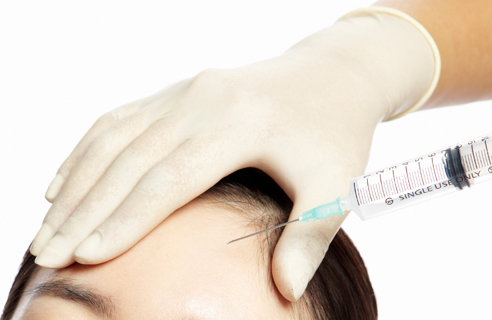A revocation of the license of Pharma Research Bio’s botulinum toxin (BTX) ReNTox is expected to deal a blow to LG Chem, Pharma Research Bio’s partner company in the Chinese market.
On Wednesday, the Ministry of Food and Drug Safety (MFDS) said Pharma Research Bio violated the Pharmaceutical Affairs Act by selling the BTX product without state approval for sales in Korea. Pharma Research Bio is a subsidiary of Pharma Research specializing in biologic agents.

The MFDS said it would nullify the permits for ReNTox Inj. 100 and ReNTox Inj. 200, suspend manufacturing temporarily, recall and discard all the ReNTox products. Although the products were made for exports without authorization for local sales, the ministry said the company would be banned from manufacturing them for six months.
Due to the administrative punishment, LG Chem, a partner company of Pharma Research Bio, is likely to face difficulties entering the Chinese market with ReNTox.
In October 2019, LG Chem signed a licensing deal with Pharma Research (then Pharma Research Product) to sell ReNTox in China. Pharma Research, searching for a partner for overseas sales of BTX, decided to team with LG Chem, which was selling hyaluronic acid filler Yvoire in China.
Under the agreement, LG Chem holds exclusive rights to conduct clinical trials and seek approval for ReNTox in China. LG Chem plans to conduct a phase 3 trial of ReNTox (BCD200) based on the results of the phase 3 trial by Pharma Research Bio in Korea and seek marketing authorization in China.
Pharma Research Bio confirmed BCD200’s non-inferiority to Botox in a local phase 3 trial in people with moderate or severe frown lines.
LG Chem has been working hard to enter the Chinese BTX market to be more competitive in the aesthetics sector. Earlier, the company established LG Jiansheng Life Sciences in Beijing to distribute aesthetic products. LG Jiasheng Life Sciences is a joint venture between LG Chem and Huadong Medicine Ningbo, a subsidiary of Huadong Medicine. LG Chem has a 60 percent stake in LG Jiasheng Life Sciences.
As the regulator decided to revoke the export permit for ReNTox and ordered a suspension of manufacturing, LG Chem is expected to face delays in entering the Chinese BTX market.
Pharma Research Bio released a statement, saying it would file a lawsuit against the MFDS to nullify the ministry’s punishment.
Hugel, another BTX maker that faced the license revocation of Botulax, is taking similar action.
“People might be confused due to the MFDS’ plan of administrative punishment announced today, but the products ordered to be discarded were manufactured for exports, and all of them were already exported,” the company said in the statement.
The company emphasized that not seeking lot release certificates has been a common practice for many years.
“It is very regrettable that the MFDS differently interpreted the export practices of many pharmaceutical companies, including us. Therefore, we will file a lawsuit immediately to cancel the move,” the company added.
Pharma Research Bio argued that drugs produced for export were not subject to state approval for local sales under the Pharmaceutical Affairs Act.
The company claimed that the purpose of enactment of the Pharmaceutical Affairs Act and the scope of pharmacy practice did not include “export,” which was why the company did not breach the law when it skipped applying for a lot release certificate.
Even though products manufactured for export were not subject to state authorization for local sales, the MFDS regarded the procedure for export as “local sales” and decided on the administrative punishment, Pharma Research Bio said.
“Pharma Research Bio has clearly stated that the products, subject to the punishment, were made for export and that they have been exported,” the company added.

